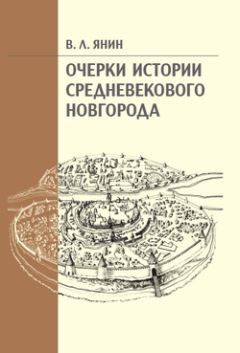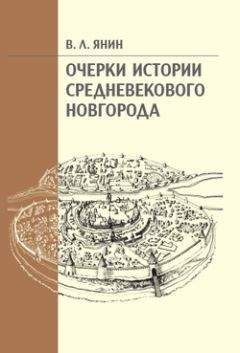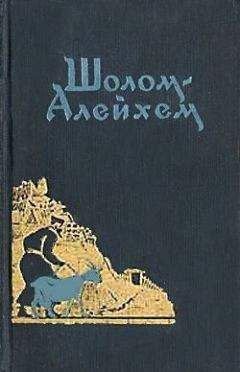584
Fessenden T. The soul of America: whiteness and the disappearing of bodies in the progressive era // Weiss G., Haber H. F. (eds.). Perspectives on embodiment: the intersections of nature and culture. New York: Routledge, 1999. P. 31–33.
Gossett Th. F. Race. The history of an idea in America. New York: Schocken Books, 1971. P. 169, 173, 287–309; Haller J. S. Outcasts from evolution: scientific attitudes of racial inferiority, 1859–1900. Urbana: Univ. of Illinois Press, 1971. P. 148–150, 170–172, 199–200; Higham J. Strangers in the land. Patterns of American nativism, 1860–1925. New York: Atheneum, 1971. P. 24–27, 52–67, 87–96.
Pitt-Rivers G. H. The clash of culture and the contact of races. London: George Routledge and Sons, 1927. О его взглядах см.: Barkan E. The retreat of scientific racism: changing concepts of race in Britain and the United States between the World wars. Cambridge: Cambridge University Press, 1992. P. 291–292. Питт-Риверс учился в Оксфорде у У. Макдуголла и считал себя функционалистом, последователем Б. Малиновского. Знал он и работы С. Широкогорова.
Lévi-Strauss C. The view from afar. New York: Basic Books, 1985. P. 17.
Ibid. P. 18–19.
Ibid. P. 24.
Benoist A. de. What is racism? // Telos. Winter 1999. № 114. P. 19, 45–47.
Ibid. P. 36, 43.
Todorov T. On human diversity. Nationalism, racism and exoticism in French thought. Cambridge, Mass.: Harvard Univ. Press, 1993. P. 63–64, 70–72.
Ibid. P. 68.
Ibid. P. 71–72.
Geertz C. The uses of diversity // Borofsky R. (ed.). Assessing cultural anthropology. New York: McGraw-Hill, 1994. P. 454–465; Friedman J. Global crises, the struggle for cultural identity and intellectual porkbarrelling: cosmopolitans versus locals, ethnics and nationals in an era of de-hegemonisation // Werbner P., Modood T. (eds.). Debating cultural hybridity. Multi-cultural identities and the politics of anti-racism. London: Zed Books, 1997. P. 77.
Wieviorka M. Is it difficult to be an anti-racist? // Werbner P., Modood T. (eds.). Debating cultural hybridity. Multi-cultural identities and the politics of anti-racism. London: Zed Books, 1997. P. 142. О контроверзе Леви-Стросса и ее неоднозначном восприятии французскими интеллектуалами см. также: Балибар Э., Валлерстайн И. Раса, нация, класс: двусмысленные идентичности. М.: Логос-Альтера, 2003. С. 38–39, прим. 5.
Lentin A. Racism and anti-racism in Europe. P. 80.
Ibid. P. 83–85.
Pettigrew Th. F., Meertens R. W. Subtle and blatant prejudice… P. 58–60; MacMaster N. Racism in Europe… P. 193–198; Wikan U. Generous betrayal: politics of culture in the New Europe. Chicago: The University of Chicago Press, 2002. P. 80–83; Lentin A. Racism and anti-racism in Europe. P. 86–91; Van Hiel A., Mervielde I. Authoritarianism and social dominance orientation: relationships with various forms of racism // Journal of Applied Social Psychology. 2005. Vol. 35. № 11. P. 2323–2344.
Van Dijk T. A. Communicating racism. Ethnic prejudice in thought and talk. Newbury Park: Sage Publishers, 1987. P. 221–222.
Ibid. P. 225–226.
Van Hiel A., Mervielde I. Authoritarianism and social dominance orientation…
Балибар Э., Валлерстайн И. Раса, нация, класс: двусмысленные идентичности. М.: Логос-Альтера, 2003. С. 35. Пол Гилрой тоже с сожалением замечает, что расовая иерархия и в наше время сохраняет свое практическое значение. См.: Gilroy P. Between camps: nations, cultures and the allure of race. London: Routledge, 2004.
Wetherell M., Potter J. Mapping the language of racism: discourse and the legitimation of exploitation. New York: Columbia Univ. Press, 1992. P. 195.
Sniderman P. M., Piazza Th., Tetlock Ph. E., Ann Kendrick A. The New Racism // American Journal of Political Science. 1991. Vol. 35. № 2. P. 423–447.
Bobo L. Whites’ opposition to busing…; Idem. Group conflict, prejudice and the paradox of contemporary attitudes // Katz Ph., Taylor D. (eds.). Eliminating racism. New York: Plenum Press, 1988.
Kleinpenning G., Hagendoorn L. Forms of racism…
Wetherell M., Potter J. Mapping the language of racism… P. 197–198.
Mullings L. Interrogating racism: toward an antiracist anthropology // Annual review of anthropology. 2005. Vol. 34. P. 684.
Augoustinos M., Ahrens Ch., Innes J. M. Stereotypes and prejudice: the Australian experience // British Journal of Social Psychology. 1994. Vol. 33. P. 125–141.
Глава 9. Новые правые и «культурный расизм»
Подробно о Новых правых и их идеологии см.: Sunic T. Against democracy and equality: the European New Right. New York: Peter Lang, 1990; Taguieff P.-A. Sur la Nouvelle Droite. Jalons d’une analyse critique. Paris: Descartes et Cie, 1994.
Иногда он пишет под псевдонимами Фабрис Ларош или Роббер де Эрт. Бенуа – парижский интеллектуал, обладающий одной из лучших частных библиотек. Его литературный талант был в 1978 г. признан Французской академией, наградившей его премией за книгу «Взгляд справа». Бенуа долгое время выпускал ежеквартальник «Нувей эколь» и часто публиковался в журнале «Элементы». См.: Johnson D. The New Right in France // Cheles L., Ferguson R., Vaughan M. (eds.). Neo-Fascism in Europe. London and New York: Longman, 1991. P. 237.
Benoist A. de, Champetier Ch. The French New Right in the year of 2000 // Telos. Spring 1999. № 115. P. 133–134. На самом деле этот лозунг впервые был сформулирован Теодором Адорно, одним из основателей Франкфуртской школы, еще в конце 1940-х гг. См.: Малахов В. С. Скромное обаяние расизма и другие статьи. М.: Дом интеллектуальной книги, 2001. С. 66. Затем в 1970-х гг. он был подхвачен левыми, которые пользовались им в борьбе с глобализацией и расизмом, основываясь на работах французских антропологов, прежде всего К. Леви-Стросса. См.: Балибар Э., Валлерстайн И. Раса, нация, класс: двусмысленные идентичности. М.: Логос-Альтера, 2003. С. 32; Guillaumin C. ‘Race’ and discourse // Silverman M. (ed.). Race, discourse and power in France. Aldershot: Avebury, 1991. P. 9, 12; Taguieff P.-A. From race to culture: the New Right’s view of European identity // Telos. Winter 1993 – spring 1994. № 98/99. P. 119; Adler F. Left vigilance in France // Telos. Winter 1993 – spring 1994. № 98/99. P. 26–27; Славный Б. Скромное обаяние левой интеллигенции // Рубежи. 1995. № 3. С. 120; Карцев Е. А. «Новые правые» Франции: антология современных идей. М.: Витязь, 1996. С. 121. Об аналогичном подходе британского чернокожего социолога см.: Hall S. Culture, community, nation // Cultural Studies. 1993. Vol. 7. № 3. P. 361. Кстати, А. де Бенуа тоже любит прибегать к авторитету Леви-Стросса. См.: Benoist A. de. What is racism? // Telos. Winter 1999. № 114. P. 44, 47.
Pascal P. Les vrais racistes // Militant. 1984. Vol. 16. № 156.
Benoist A. de. Three interviews with Alain de Benoist // Telos. Winter 1993 – spring 1994. № 98/99. P. 175–177, 179–181, 185–186, 195–196.
Benoist A. de. The idea of empire // Telos. Winter 1993 – spring 1994. № 98/99. P. 87–88. Сходные идеи отстаивает Итальянское социальное движение, основанное в 1946 г. сподвижниками Муссолини. Сохраняя расистское отношение к иммигрантам, сегодня оно всеми силами отмежевывается от расизма, настаивая на своем стремлении сохранить итальянскую культуру и идентичность от якобы негативного влияния иммигрантов. Об этом см.: Cheles L. The Italian Far Right: attitudes and views on ethnicity and immigration // Hargreaves A. G., Leaman J. (eds.). Racism, ethnicity and politics in contemporary Europe. Aldershot: Edward Elgar, 1995. P. 159–175.
Benoist A. de. Confronting globalization // Telos. Summer 1996. № 108. P. 135.
Coogan K. Dreamer of the day: Francis Parker Yockey and the postwar fascist international. Brooklyn, N. Y.: Autonomedia, 1999.
Об этом см.: Griffin R. Revolt against the modern world: the blend of literary and historical fantasy in the Italian New Right // Literature and History. 1985. Vol. 11. № 1. P. 105. Об отсутствии у А. де Бенуа и Новых правых в целом сколько-нибудь принципиальной позиции по жгучим вопросам современности и об их теоретических колебаниях в зависимости от степени знакомства с теми или иными философскими концепциями см.: Benoist A. de. Three interviews with Alain de Benoist. P. 190–192. Об этом см.: Taguieff P.-A. Discussion or inquisition? The case of Alain de Benoist // Telos. Winter 1993 – spring 1994. № 98/99. P. 34–54; Torigian M. The philosophical foundations of the French New Right // Telos. Fall 1999. № 117. P. 13, note 22, and 19, note 45.
Об этом см.: Barot R., Bird J. Racialization: the genealogy and critique of a concept // Ethnic and Racial Studies. 2001. Vol. 24. № 4. P. 605–606.
Miglio G. The cultural roots of the federalist revolution // Telos. Fall 1993. № 97. P. 33–39.
Hall S. Culture, community, nation // Cultural Studies. 1993. Vol. 7. № 3. P. 354.
См., напр.: Hall S. The question of cultural identity // Hall S., Held D., McGrew T. (eds.). Modernity and its futures. Cambridge: Polity Press in association with the Open University, 1992. P. 296–297; Idem. Culture, community, nation. P. 356; Said E. W. Culture and imperialism. New York: Alfred A. Knopf, 1993.
Miglio G. The cultural roots of the federalist revolution. О его негативном отношении к мигрантам с Юга см.: Gillette A. Racial theories in Fascist Italy. London: Routledge, 2002. P. 184.
Hall S. Culture, community, nation. P. 354.
Об этом см.: Fysh P., Wolfreys J. The politics of racism in France. Basingstoke: Palgrave, 2002. P. 121.
О методах дискредитации научных подходов Новыми правыми с позиций солипсизма и об отстаивании ими, вслед за Ницше, самоценности этнических мифов см.: Sheehan Th. Paris: Moses and Polytheism // Montagu A. (ed.). Sociobiology examined. Oxford: Oxford University Press. 1980. P. 342–355; Torigian M. The philosophical foundations… P. 23–40.
Benoist A. de. Three interviews with Alain de Benoist. P. 181, 189–190, 195–197; Idem. What is racism? P. 41–48.





